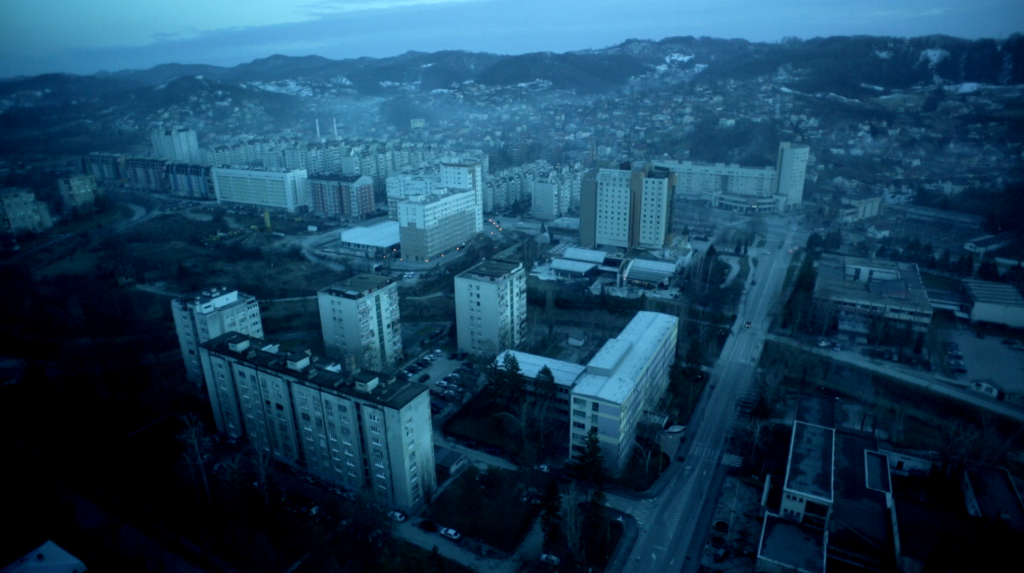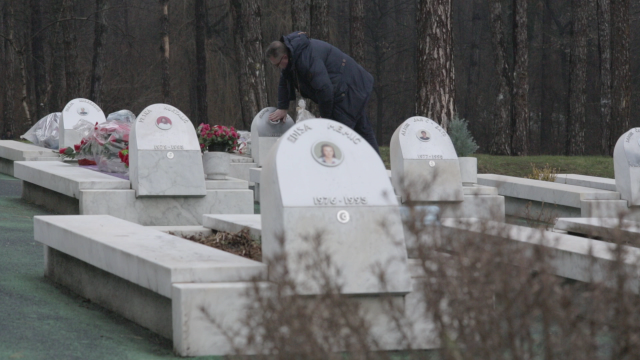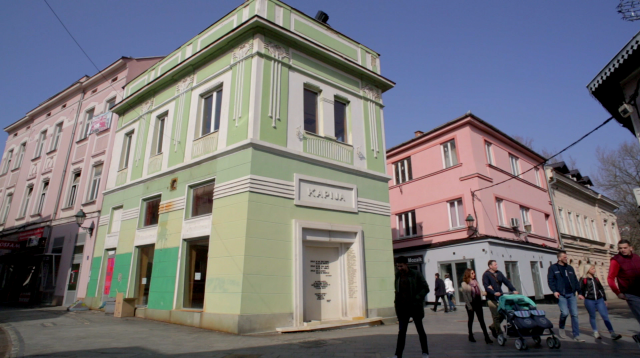
The historical monument in the city of Tuzla bears witness to many events, but one of the most devastating and sorrowful occurred 28 years ago – the massacre of youth at the Tuzla Kapija [Gate]. Despite the crime having been adjudicated, almost no one was held accountable.
On May 25th, 1995, at 8:55 p.m., members of the Army of the Republika Srpska (Vojska Republike Srpske; VRS) launched a grenade from Mount Ozren towards the Gate the very heart of Tuzla. This act claimed the lives of 71 people and left over 120 injured. Among those killed was Sandro Kalesić, who was just two and a half years old. Dino Kalesić, Sandro’s father, held his son in his arms as he died. He says that it’s increasingly difficult for him to talk about this, as every anniversary brings up painful emotions.
“We were together the entire day. We went to a cafe, and as soon as we sat down and ordered, a grenade hit, and everything disappeared in a single second. Silence, more silence, and then the screams started,” Sandro’s father says, recalling the moment when the first grenade fell.
Novak Đukić, the commander of the VRS’ Ozren tactical group, was convicted in the Court of Bosnia and Herzegovina for his part in the Tuzla Gate massacre and sentenced to 20 years in prison. However, Đukić fled to Serbia to evade serving his sentence. He was initially sentenced to 25 years in prison, but a more lenient law in effect at the time of the crime resulted in the verdict being overturned. Consequently, Đukić was released from prison in February 2014, pending a review of the verdict. He took advantage of this to relocate to Serbia. Despite several scheduled hearings for the Serbian judiciary to assume responsibility for the Bosnian and Herzegovinian verdict, this did happen, citing Đukić’s “poor health condition” as the justification.

According to Zijad Lugavić, the mayor of Tuzla, Đukić was convicted for ordering the commission of the crime, but the direct perpetrators were not brought to justice, and no legal proceedings were initiated against them. Lugavić emphasized that the majority of the victims were young people, making the failure to achieve justice all the more grievous.
Regarding the execution of the verdict and the transfer of Đukić to serve his sentence, Lugavić explained that the hearings before the High Court in Belgrade have been repeatedly delayed. He elaborated that the court has consistently accepted the medical commission’s report citing alleged “health issues” as the reason for Đukić’s failure to appear before the court and non-attendance at the hearings.
“In the 2018 expert reports, Novak Đukić was declared temporarily incompetent due to alleged ‘psychological’ issues, and although a new expert report was scheduled for one year later, we do not have information on whether it took place at all and whether Novak Đukić is in the hospital or home with his family,” said Lugavić.
Lugavić also highlighted that in November 2019, the Serbian Ministry of Defense organized a promotional event for a book titled “Tuzla Gate: A Staged Tragedy” by Ilija Branković, which denies the crime in question. The promotion was attended by Serbian Defense Minister Aleksandar Vulin and convicted criminal Đukić.
“By hiding the war criminal Novak Đukić, the Serbian regime insults the victims of this war crime and Bosnia and Herzegovina, humiliates all Serbian citizens, and partakes in the cruel propaganda campaign to deny the war crime and contest the final verdict. This is done ruthlessly and monstrously, just like the crime committed on May 25, 1995, itself,” asserted Lugavić.
As the mayor of Tuzla further added, in the modern democratic world, it is disheartening that the monstrous war crime at the Tuzla Gate can go unpunished, depriving the victims of the war crime and their families of the justice they deserve.

“Given that war crimes do not have a statute of limitations, I expect the competent judicial authorities of BiH to open an investigation to find the perpetrators of war crimes at the Gate and to prosecute them,” Lugavić stated.
The Srebrenica Memorial Center and Post-Conflict Research Center, in collaboration with the English production company PINCH Media, created the film “Kapija ‘95” in order to both support the victims’ families and document the crime at Kapija. The film premiered last year in Potočari and in Tuzla, coinciding with the commemoration of the anniversary of the Tuzla massacre. It was also broadcast on several television stations and subsequently donated to the Kapija Memorial Center in Tuzla.
Velma Šarić, the president and founder of PCRC and the film’s producer, emphasized the vital role of documentaries as a powerful tool for educating the public about war crimes and their consequences. Such films serve as a crucial platform for sharing testimonies of survival and also deliver an important message to young people, ensuring that these crimes are never repeated.
“Our Center will continue to document the crimes that took place during the war so that they are not denied, but also so that we accept the facts established by the court,” affirmed Šarić.






